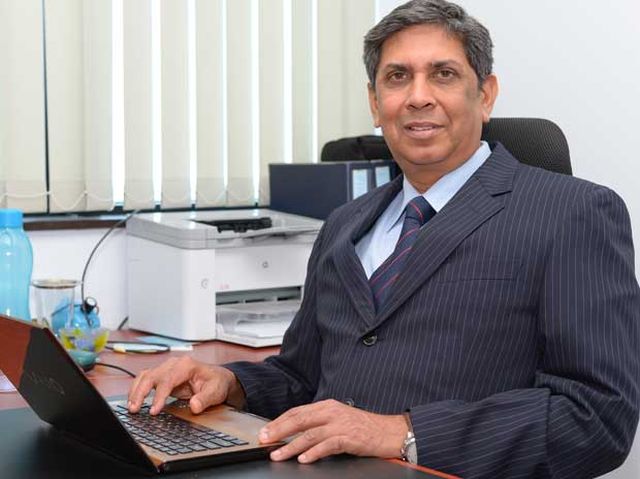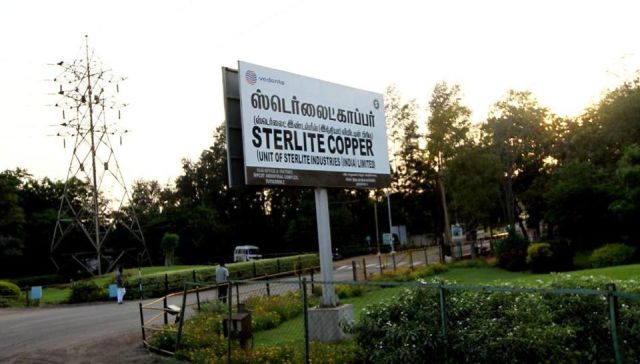
In Tuticorin, false propaganda dominated over truth: Sterlite Copper CEO
By Aparajita Gupta,
New Delhi : Amidst death of 13 people and Tamil Nadu government’s order shutting down of the 22-year old plant, P. Ramnath, CEO of Sterlite Copper says that “false propaganda dominated over the truth about the company”.
“We are deeply saddened and aggrieved by the loss of 13 innocent lives in the unfortunate incident on May 22, 2018 at Tucorin town, a few kilometers away from our plant. While it is an irreparable loss to these families, Vedanta as a responsible corporate citizen and on humanitarian grounds, would like to extend all possible support to families of deceased and severely injured,” Ramnath told IANS in an email response to queries.
“The basic premise of protest was unfortunate, as the plant was non-operational, awaiting Consent to Operate from TNPCB (Tamil Nadu Pollution Control Board). False propaganda dominated over the truth about the company, we will continue to bring out the truth to the general public and explore all options,” he added.
Sterlite copper is a unit of Vedanta Ltd part of Vedana group headed by Anil Agarwal.
Ramnath said the company was always willing to have a dialogue with the protestors and address their concerns.
“We were always willing to have a dialogue with the protestors and address their concerns. This was even communicated to the general public and other stakeholders through print media. We invited them to come and visit our facilities to see for themselves how we have undertaken environmental friendly initiatives. They did not respond,” he said.
Tamil Nadu Chief Minister K.Palaniswami on May 29 said the order issued by the state government for shutting down the Sterlite Copper plant was legally valid and blamed the DMK for the violence in Thuthookudi or Tuticorin on May 22.
Ramnath said the company is still deciding on its future course of action regarding the plant closure order.
“Closure of Sterlite Copper plant is an unfortunate development, especially since we have operated the plant for over 22 years in most transparent and sustainable way, contributing to the Tuticorin and state’s socio-economic development. We will decide on the future course of action,” he said when asked whether the company would move the courts regarding closure.
The decision of the Tamil Nadu government to shut the copper smelter plant in Tuticorin would have serious economic ramifications by pushing India’s annual import bill by an estimated $2 billion, Ramnath had said earlier.
“While an estimated 30,000 direct and indirect jobs are now on the line, a large number of small to medium enterprises that are dependent on our smelter for copper are also likely to suffer due to supply disruptions. Since Vedanta Sterlite is one of the largest copper producers in the country, manufacturers in sectors ranging from electrical to defence will have to turn to imports and that will push up the nation’s annual import bill by an estimated $2 billion based on the current price,” he had said.
In a second successive blow to Vedanta Ltd, the State Industries Promotion Corporation of Tamil Nadu Ltd (SIPCOT) on May 29 cancelled, “in larger public interest”, the land allotted in Thoothukudi for the expansion of Sterlite Copper’s smelting plant.
Asked why the company did not move well in time to answer the allegation against it on pollution and environment degradation, Ramnath said: “Since the beginning of the protests our team has met with the protesting villagers and the various stakeholders to dispel their fears. We had published a series of advertorials to reach out to the general public and even had debates on regional TV channels, however anti-development associations/groups have whipped up the emotions of the public by citing completely baseless and unfounded health hazards.”
He also clarified that the company was not complacent regarding the simmering tension.
“There is no room for complacency in such matters and our team has been constantly engaging with all the stakeholders.”
The Vedanta copper smelter serves over 800 small and medium enterprises (SMEs) in the downstream industry for the electrical sector. The bulk of supplies to the electrical sector are to units in northern and western regions.
(Aparajita Gupta can be contacted at aparajita.g@ians.in)
—IANS

